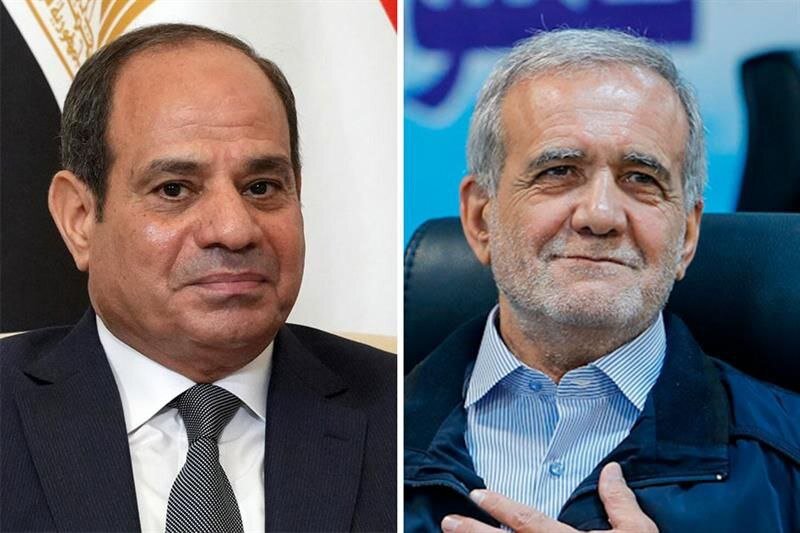Cairo – The call between President Abdel Fatta El-Sisi and his Iranian counterpart Masaud Pezakian reflects important developments in the trajectory of Egyptian-Iranian relations. In the Gaza Strip, in particular, we are at a very sensitive time as regional tensions escalate.
This communication means the possibility of strengthening the dialogue channel between Cairo and Tehran. This could contribute to alleviating local tensions, especially when both parties agree on the need to contain the crisis rather than inflamed. The relationship between Egypt and Iran has long been a complex equation influenced by geopolitical and ideological considerations. Since the Iranian Revolution in 1979, relations have experienced a phase of tension and careful reconciliation due to different attitudes towards regional issues, such as the Arab-Israel conflict, Persian Gulf security, and the role of power in key regions. Nevertheless, shared interests, particularly when securing transport routes and including conflict, could drive both countries to reevaluate relational priorities in ways that would help regional stability.
Egypt maintains its position as an active player, particularly in managing regional balances regarding the Palestinian crisis, and is considered a reliable mediator in its efforts to eliminate tensions between the Palestinians and Israel. Egypt also has a direct influence on the Gaza factions. From this perspective, the communication channel with Tehran represents an opportunity to increase joint pressures for a ceasefire, especially given Iran’s support for Palestinian resistance, and considers understanding between Cairo and Tehran as an important factor shaping the future of the crisis. Conversely, Egypt and Iran have leverage that can be used to strengthen mutual cooperation, particularly on regionally important issues such as the security of the Red Sea and stability of Iraq, Syria and Lebanon. However, important issues remain, such as the impact of Iran in the region and its relationship with Egypt’s traditional allies in the Persian Gulf. The Egyptian-Iranian settlement must be understood gradually, taking these delicate balances into consideration and without harming Cairo’s relationship with local partners.
Recent developments have shown growing concerns about the possibility that the Gaza conflict will expand to a wider range involving Lebanon, Iraq and perhaps Yemen. In this context, Egypt was able to play a pivotal role in calming the situation through diplomatic dialogue with Iran to regulate the movement of Iran-backed factions and prevent the region from falling into unpredictable conflict. The success of this pass depends on the parties’ ability to adopt a rational approach to balance regional interests with security commitments on each side. This potential settlement between Cairo and Tehran comes against the complex international context where Western pressure on Iran is increasing due to the nuclear program, but Egypt faces economic and security challenges that require strengthening the role of the region. Therefore, the Egyptian-Iran dialogue could serve as an entry point for exploring opportunities for cooperation in areas such as economy, trade and energy, particularly under sanctions imposed on Iran.
In light of these factors, Egyptian-Iran relations appear to be entering a new stage of careful interaction in which Cairo attempts to achieve strategic benefits without undermining regional principles. Conversely, Tehran may feel that this settlement is an opportunity to improve its diplomatic status and expand its policy towards its neighbors. The success of this path depends on the parties’ ability to reach an understanding that manages disagreements, promotes stability and prevents local conflict escalation.

